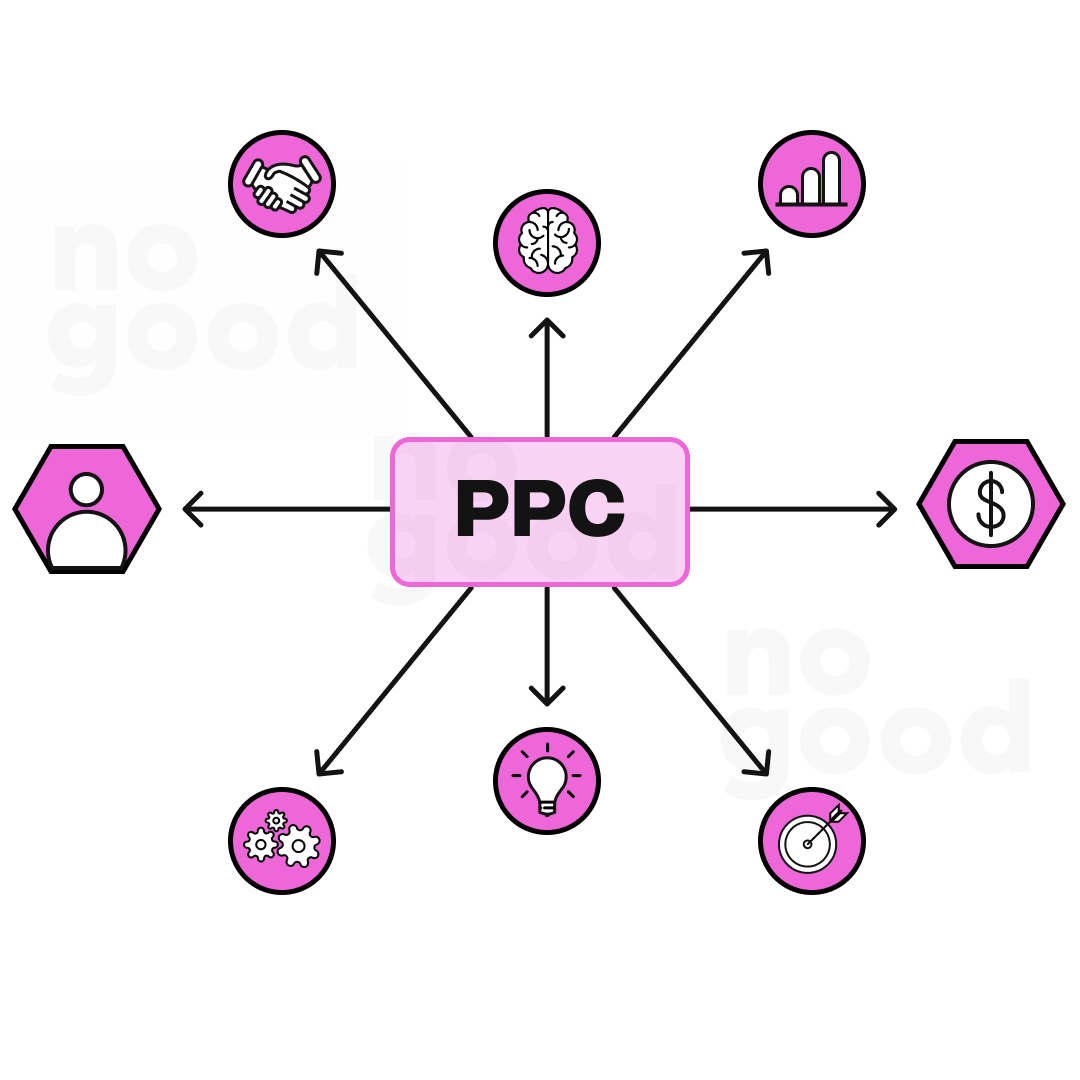In today’s marketing reality, Pay-Per-Click (PPC) advertising stands as a dynamic force, offering businesses the opportunity to connect with their target audience in unprecedented ways. As we enter 2024, the landscape of PPC tools has become more sophisticated, providing digital marketers with many options to optimize and elevate their campaigns.
This comprehensive guide delves into the world of PPC tools, dissecting the crucial questions that every savvy PPC marketer should ponder. What are these PPC tools, and how do they contribute to the profitability of your advertising endeavors? Is the time-tested pay-per-click method still relevant, or has it met its demise amid emerging trends? How exactly does one navigate the intricacies of cost-per-click payments?
Join us on a journey through the intricacies of Google Ads, Microsoft Advertising, and various third-party tools designed to revolutionize how we approach PPC campaigns. From giants like SEMrush and SpyFu to the efficiency-driven solutions of WordStream and Optmyzr, we’ll analyze each tool’s unique features, advantages, and how they cater to the diverse needs of digital marketers.
Whether you’re a seasoned PPC expert or just venturing into the captivating world of paid advertising, this blog is your compass to navigate the seas of digital marketing in 2023. Let’s unravel the secrets of PPC success and discover the tools that will shape the future of online advertising. Welcome to the ultimate guide on the best PPC tools, where success is just a click away.
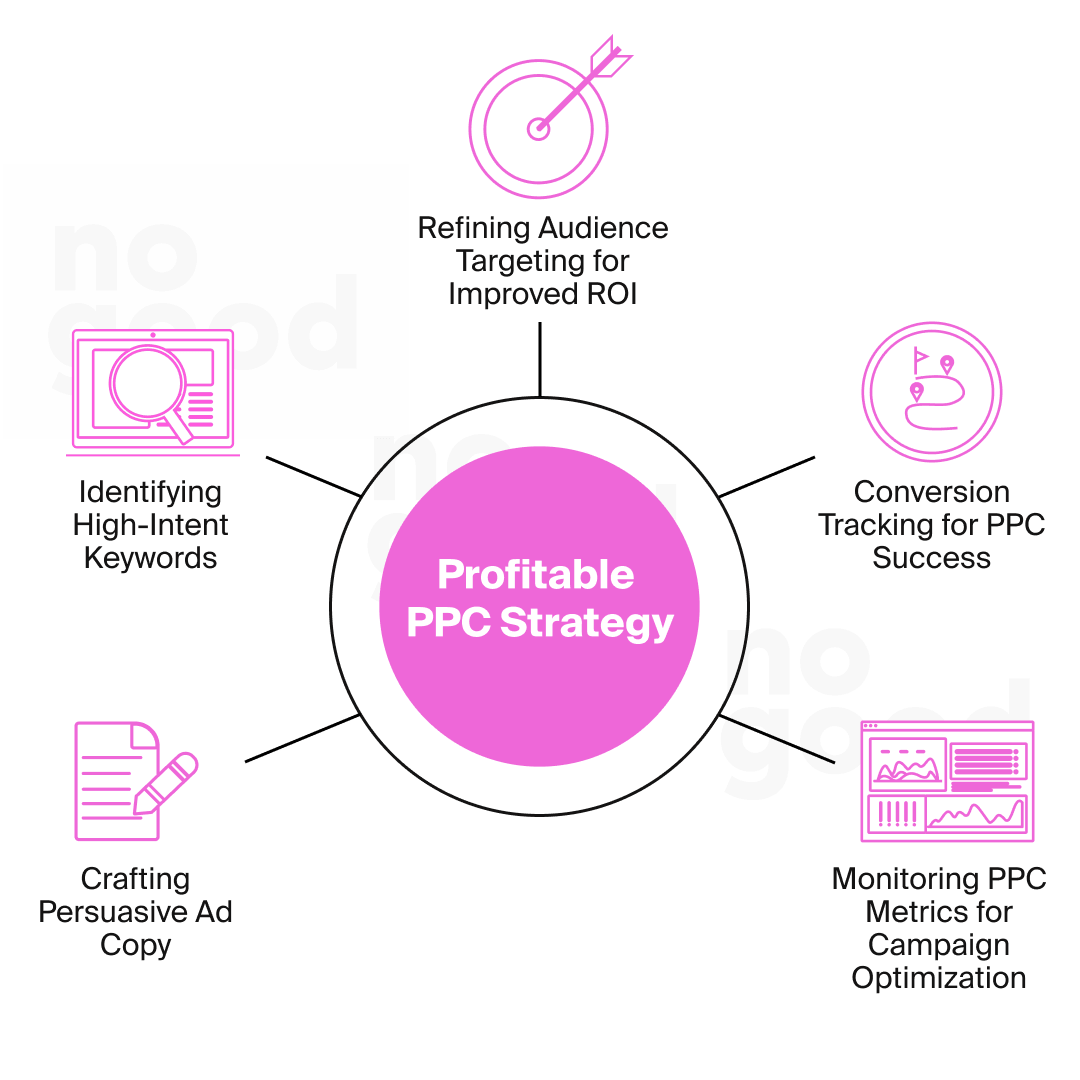
Looking for PPC services and strategies for efficient revenue growth?
What are PPC Tools?
PPC tools, or Pay-Per-Click tools, constitute a diverse set of applications and platforms that digital marketers leverage to plan, execute, and optimize their Pay-Per-Click advertising campaigns. These tools are designed to enhance the efficiency and effectiveness of online advertising efforts, particularly in platforms like Google Ads, Microsoft Advertising, and other search and social media advertising channels.
Keyword Research Tools and Analysis: PPC tools are pivotal in keyword research, helping marketers identify relevant and high-performing keywords. Examples of tools for this purpose include the Google Keyword Planner and SEMrush’s PPC Keyword Tool. These tools enable users to discover keywords with the right search volume, competition level, relevance to the target audience, or any missing keyword opportunities from your keyword strategy.
Bid Management: Efficient bid management is critical for controlling advertising costs and maximizing ROI. PPC tools like Google Ads’ Smart Bidding and Optmyzr offer automated bid optimization features. These tools analyze various factors, including historical performance and user behavior, to adjust bids in real time for optimal campaign outcomes.
Ad Creation and Testing: Crafting compelling ad creatives is essential for attracting the target audience. PPC tools like AdEspresso by Hootsuite and WordStream provide ad creation, A/B testing, and performance tracking functionalities. These features allow marketers to experiment with different ad variations and determine the most effective messaging.
Competitive Analysis: Understanding competitor strategies is crucial for staying ahead in the competitive landscape. Tools like SEMrush and SpyFu offer valuable insights into competitors’ ad copies, keywords, and budgets. This information helps marketers refine their strategies and identify opportunities for improvement.
Analytics Tools and Reporting: Detailed analytics and reporting tools, such as Google Analytics and Google Data Studio, enable marketers to track the performance of PPC campaigns comprehensively. These tools provide insights into key PPC metrics like click-through rates, conversion rates, and user behavior, facilitating data-driven decision-making.
Budget Optimization: PPC tools assist in optimizing advertising budgets to ensure efficient allocation of resources. Features like WordStream’s 20-Minute Work Week and Google Ads’ Budget Optimization tools help marketers manage budgets effectively and allocate spending based on the performance of individual campaigns.
Landing Page Optimization: PPC success goes beyond ad clicks; it involves optimizing landing pages for conversion. Tools like Unbounce enable marketers to create and test landing pages, ensuring a seamless user experience and higher conversion rates from PPC traffic.
Automation and Efficiency: Many PPC tools, including Optmyzr and WordStream, incorporate automation features to streamline routine tasks. This automation not only saves time but also enhances the efficiency of campaign management.
In essence, PPC tools are the backbone of successful digital advertising campaigns, offering a comprehensive suite of features for planning, executing, and optimizing every facet of Pay-Per-Click strategies. These tools empower digital marketers to navigate the complexities of the digital landscape, make informed decisions, and achieve optimal results in their advertising endeavors.
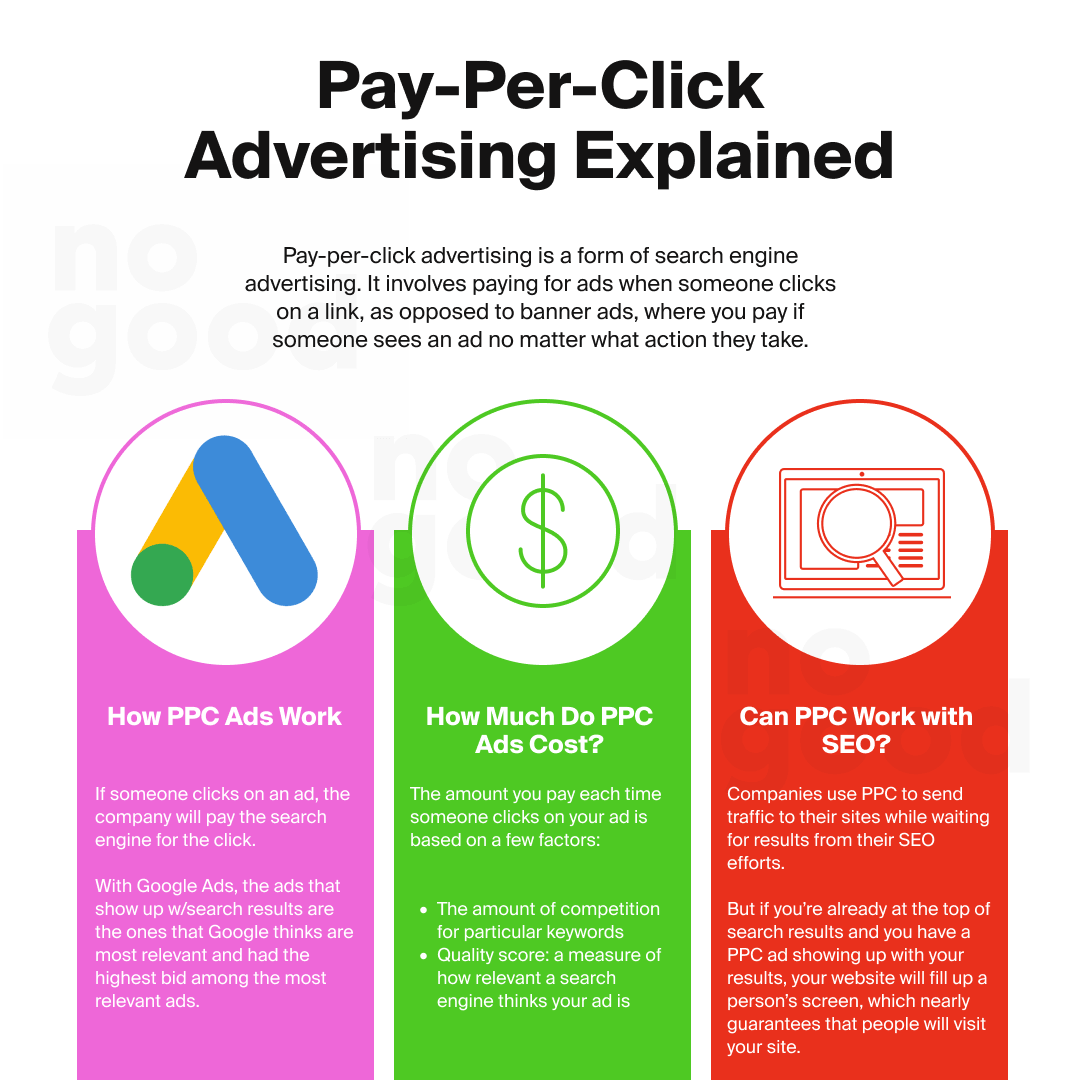
AI contribution in the PPC world
When it comes to PPC optimization, Artificial Intelligence (AI) plays a pivotal role by harnessing advanced algorithms and machine learning capabilities. AI excels in data analysis, automating routine tasks, and personalizing campaign strategies. Its predictive analytics empower marketers to foresee trends, while competitive analysis tools leverage AI for in-depth insights into competitors’ strategies.
The efficiency gains from AI-driven optimization not only streamline PPC management but also foster continuous improvement, allowing marketers to make data-driven decisions in real-time. As we explore specific tools, remember how these AI-driven features collectively enhance the precision and efficacy of PPC campaigns.
Examples of AI PPC tools
Opteo

AI Expertise:
- Opteo employs machine learning for data analysis and optimization.
- Features:
- Automated Optimization:
- AI suggests changes to Google Ads campaigns, automating optimization tasks.
- Performance Insights:
- Machine learning identifies performance trends and recommends adjustments.
- Ad Copy Testing:
- AI-driven testing of ad copies to improve click-through rates.
- Automated Optimization:
Fluency
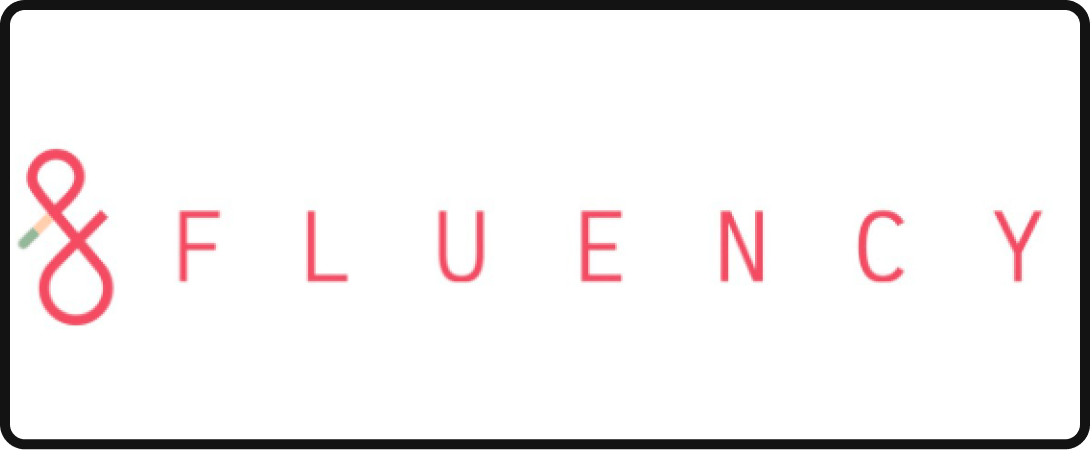
AI Expertise:
- Fluency focuses on AI-driven bid management for PPC campaigns.
- Features:
- Automated Bidding:
- AI algorithms optimize bidding strategies for better ROI.
- Budget Allocation:
- AI provides recommendations for allocating budgets across campaigns.
- Predictive Analytics:
- AI forecasts performance based on historical data and adjusts strategies accordingly.
- Automated Bidding:
Acquisio

AI Expertise:
- Acquisio specializes in AI-powered bid management and campaign optimization.
- Features:
- Bid and Budget Management:
- AI-driven algorithms optimize bids and allocate budgets effectively.
- Ad Automation:
- Automation of ad creation and optimization using AI insights.
- Cross-Channel Optimization:
- AI analyzes data across channels to holistically optimize campaigns.
- Bid and Budget Management:
Twilio

AI Expertise:
- Twilio integrates AI for communication solutions, including chatbots.
- Features:
- AI-Powered Chatbots:
- Enhances PPC campaigns with AI-driven chatbots for personalized interactions.
- Personalized Messaging:
- AI tailors SMS and other messaging content based on user behavior.
- Customer Journey Optimization:
- AI helps optimize the customer journey by analyzing communication patterns.
- AI-Powered Chatbots:
SEMrush

AI Expertise:
- SEMrush incorporates AI for competitive analysis, keyword research, and content optimization.
- Features:
- Competitive Intelligence:
- AI-driven insights into competitors’ PPC and SEO strategies.
- Keyword Gap Analysis:
- AI identifies opportunities and gaps in keyword strategies.
- Content Optimization:
- AI suggests content improvements for better SEO and PPC performance.
- Competitive Intelligence:
SpyFu
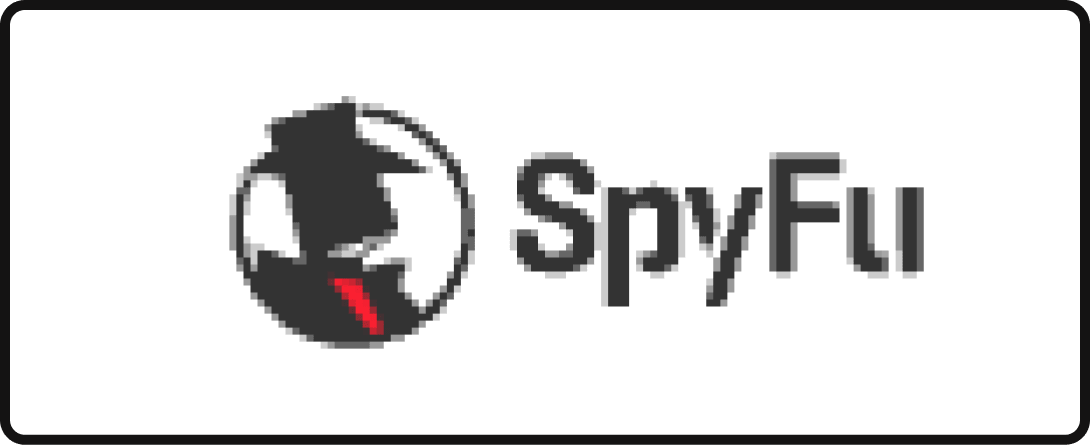
AI Expertise:
- SpyFu employs AI for competitive intelligence in the PPC landscape.
- Features:
- Competitor Analysis:
- AI provides insights into competitors’ ad strategies and spending.
- Keyword Recommendations:
- AI assists in identifying relevant and high-performing keywords.
- Ad Copy Testing:
- Automated testing of ad copies using AI algorithms for optimal performance.
- Competitor Analysis:
Artificial Intelligence (AI) has revolutionized the PPC landscape, creating a paradigm shift in marketing strategies. With its data analysis, automation, and personalization prowess, AI has become an indispensable asset for marketers seeking optimal campaign performance. Predictive analytics provided by AI allows for proactive decision-making, while competitive analysis tools offer unparalleled insights into market dynamics.
The efficiency gains achieved through AI-driven optimization streamline PPC workflows and pave the way for continuous improvement, empowering marketers to adapt in real time. As AI continues to evolve, its ongoing impact on the marketing industry promises to further refine and elevate the precision of PPC strategies, ensuring marketers stay at the forefront of innovation and effectiveness.
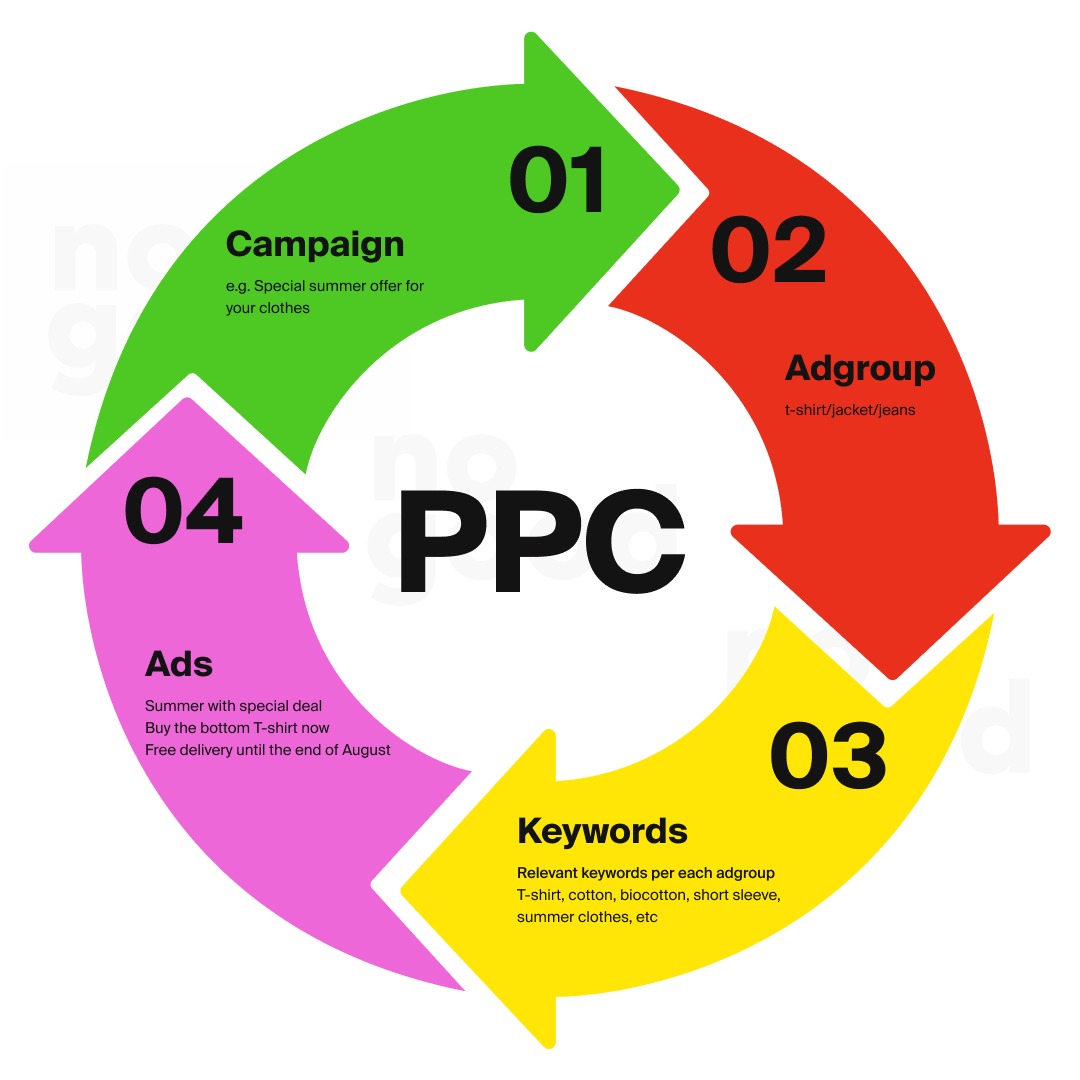
Is pay-per-click profitable?
Pay-Per-Click (PPC) advertising can be highly profitable when strategically executed. Numerous businesses across various industries have experienced significant success and return on investment (ROI) through well-optimized PPC campaigns. Here are a few examples and insights to illustrate the profitability of PPC:
E-commerce Success Stories:
Amazon: Many e-commerce businesses thrive on Amazon’s PPC platform. Sellers can target specific keywords to promote their products, increasing visibility and sales. Success on Amazon often correlates with effective PPC strategies, demonstrating the profitability of pay-per-click advertising in the e-commerce sector.
Local Businesses and Service Providers:
Local Service Providers: Small businesses offering services such as plumbing, landscaping, or legal services can benefit from geographically targeted PPC campaigns. By bidding on relevant local keywords, businesses can ensure their ads are shown to potential customers in specific locations, leading to increased inquiries and conversions.
Lead Generation Campaigns:
B2B Companies: Businesses in the Business-to-Business (B2B) sector often rely on PPC for lead generation. By targeting industry-specific keywords and creating compelling ad copies, B2B companies can attract qualified leads. This approach can be particularly profitable when the lifetime value of a customer justifies the cost per click.
High-Value Products and Services:
Luxury Brands: Companies offering high-end or luxury products often find success with PPC advertising. While the cost per click may be relatively high, the potential profit margin on each sale justifies the investment. Effective targeting and ad creatives tailored to a discerning audience contribute to the profitability of these campaigns.
Data-Driven Optimization:
Conversion Tracking and Analytics: The profitability of PPC campaigns is closely tied to the ability to track and analyze key performance metrics. Utilizing tools like Google Analytics and conversion tracking features within PPC platforms allows businesses to understand which keywords, ads, and audience segments drive the most valuable actions, enabling ongoing optimization.
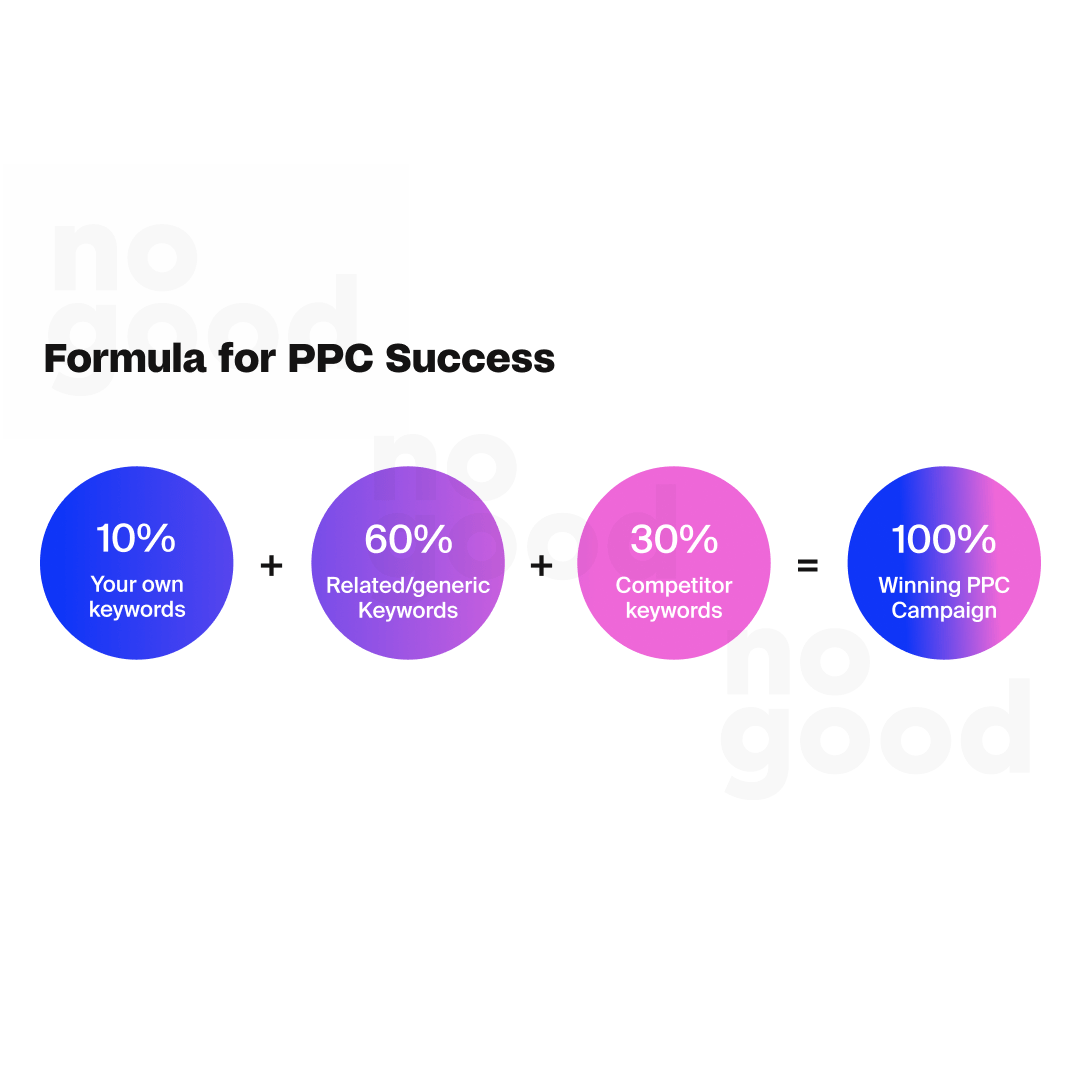
Strategic Budget Allocation:
Budget Optimization: Businesses that strategically allocate their PPC budgets based on performance metrics can maximize profitability. Regularly reviewing and adjusting the budget for high-performing campaigns while minimizing spend on less effective ones ensures a more efficient use of resources.
It’s important to note that the profitability of PPC campaigns depends on various factors, including the industry, competition, targeting strategies, and the quality of ad creatives. Successful businesses often invest time and resources in thorough keyword research, A/B testing, and ongoing optimization to ensure their PPC campaigns deliver a positive return on investment.
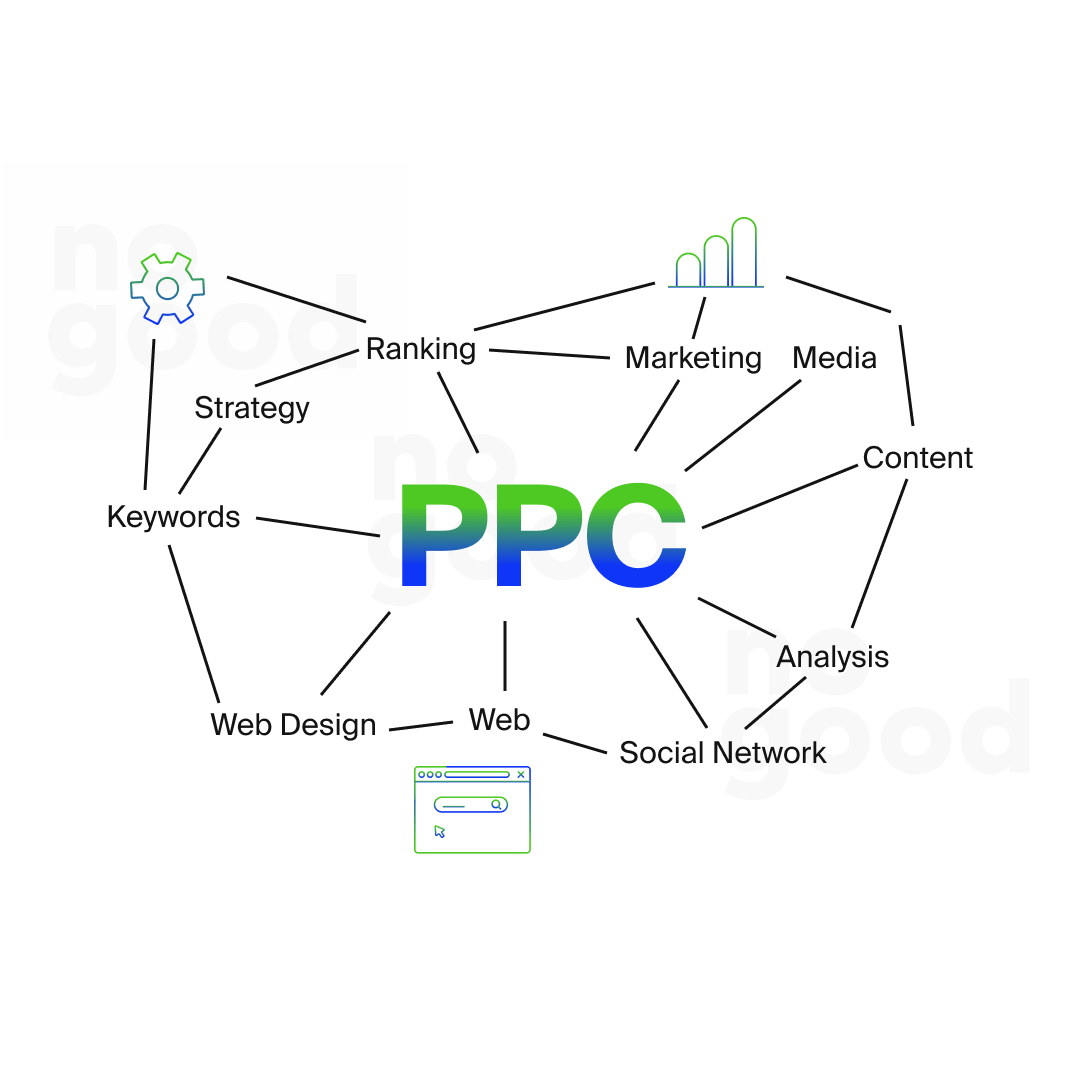
How do you get paid cost per click?
Getting paid on a cost-per-click (CPC) basis involves a straightforward yet dynamic process commonly employed in online advertising platforms. Here’s a step-by-step breakdown of how advertisers get paid through the cost-per-click model:
- Choose an Advertising Platform:
- Advertisers select an online advertising platform that operates on a CPC model. Prominent examples include Google Ads, Bing Ads, and social media platforms like Facebook Ads.
- Create an Ad Campaign:
- Advertisers design and set up their ad campaigns within the chosen platform. This involves defining campaign objectives, selecting target audiences, and creating compelling ad creatives.
- Keyword Selection:
- For search engine advertising, advertisers choose relevant keywords that trigger the display of their ads when users search for those terms. The selection of keywords is a crucial aspect of CPC advertising as it determines the context in which ads are shown.
- Bid on Keywords:
- Advertisers set a maximum bid for each selected keyword, or the algorithm automatically allocates the budget based on best-performing keywords. The bid represents the maximum amount they are willing to pay for a click on their ad when a user searches for the associated keyword. The bid, along with the quality of the ad and other factors, influences the ad’s position in the search results.
- Ad Placement and Auction:
- When a user conducts a search or engages with content that triggers ad placements, an auction takes place. The advertising platform considers bids, ad relevance, and other factors to determine the winning ad displayed to the user.
- User Clicks on the Ad:
- When a user clicks on the ad, the advertiser is charged the amount of their bid for the specific keyword. This click represents a direct interaction with the ad and an opportunity for the advertiser to convert the user into a customer, lead, or fulfill another predefined objective.
- Payment Deducted from Advertiser’s Account:
- The advertising platform deducts the specified cost per click from the advertiser’s account. This amount is subtracted from the advertiser’s prepaid budget or charged to their account based on the billing cycle.
- Monitor and Adjust Campaign:
- Advertisers continually monitor the performance of their campaigns, assessing metrics such as click-through rates, conversion rates, and return on investment. Based on these insights, they can adjust bids, refine targeting, and optimize ad creatives to enhance the overall effectiveness of their CPC campaigns.
It’s important to note that the actual cost per click can vary based on factors like competition for keywords, ad quality, and the bidding strategies employed by other advertisers in the same space. Advertisers strive to balance bid amounts and the value derived from user clicks to ensure a profitable return on their advertising investment.
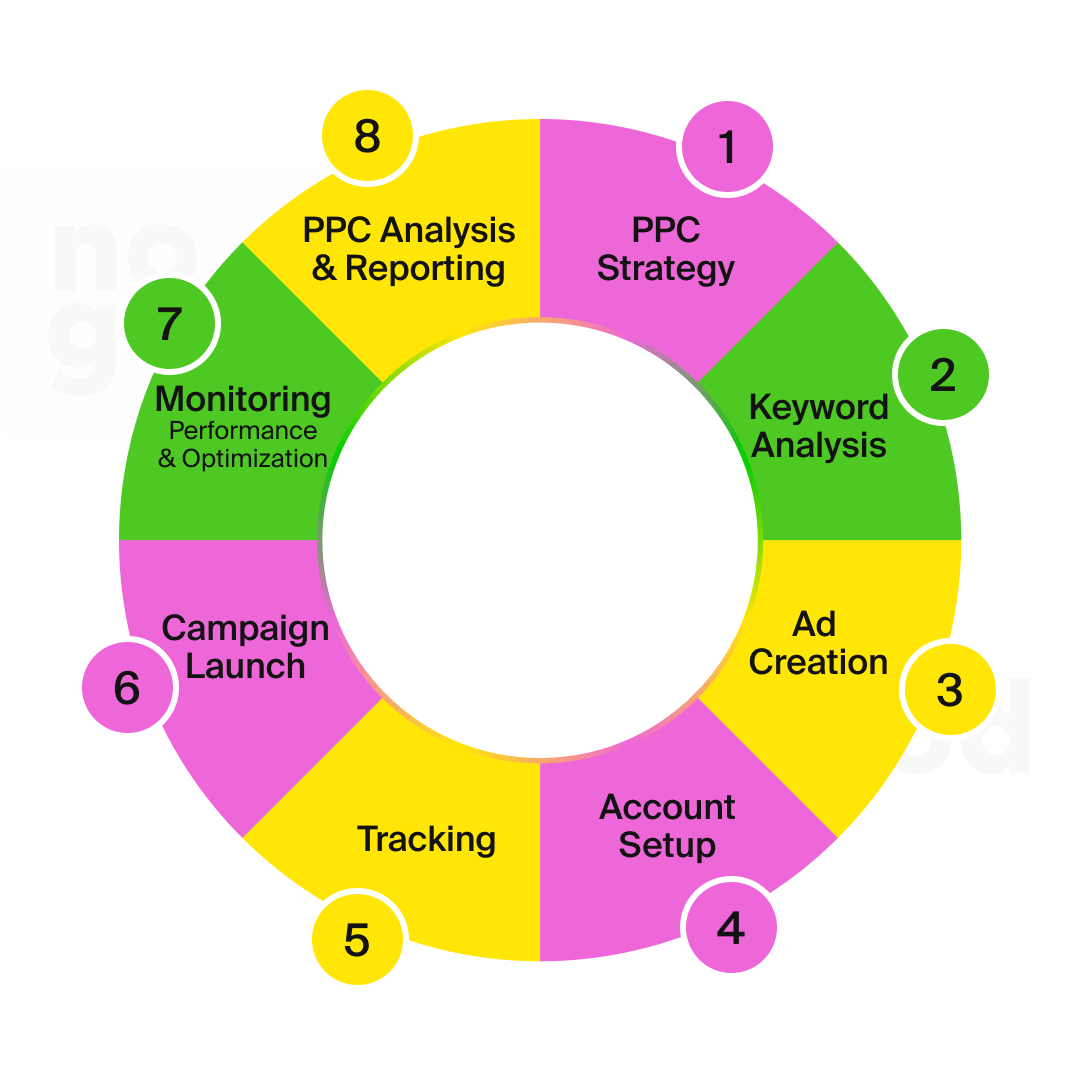
Is pay-per-click dead?
Pay-Per-Click is not dead, and it continues to be a significant and effective digital advertising strategy. However, trends and effectiveness can evolve, so it’s essential to analyze the reasons behind the perception that PPC might be considered “dead” or losing relevance.
Reasons Why Some May Consider PPC “Dead”
Saturation and Increased Competition:
With more businesses entering online advertising, specific industries and keywords have become highly competitive. This increased competition can lead to rising costs per click and potentially lower returns on investment for some advertisers.
Ad Blindness and User Experience:
Users have become more adept at ignoring or bypassing online ads, leading to ad blindness. Advertisers must continually refine their ad creatives and targeting strategies to capture user attention effectively.
Emergence of New Marketing Channels:
The surge of alternative marketing channels like influencer marketing, content marketing, and social media marketing has sparked discussions about the sustained relevance of traditional PPC strategies. These alternatives capitalize on authenticity, engagement, and informational depth, posing challenges like influencer-dependency risks, content saturation, and algorithmic uncertainties. The impact on traditional PPC is evident in heightened competition for user attention and evolving user behaviors.
However, forward-thinking marketers embrace a hybrid approach, integrating PPC with these channels to create a synergistic strategy. This approach leverages the strengths of each channel while embracing data-driven insights to navigate the complexities of an ever-evolving digital marketing landscape. The landscape is shifting towards a holistic and integrated approach that combines the best of traditional and emerging marketing channels.
Shift Towards Organic Search:
Some argue that users increasingly trust organic search results over paid advertisements, leading to a shift in focus towards Search Engine Optimization (SEO) and content marketing.
On the other hand (why PPC is not dead)
1. Data-Driven Success Stories:
Numerous businesses continue to achieve significant success with PPC advertising. The ability to target specific audiences, track performance metrics, and adjust campaigns in real-time provides a level of control and measurability that is hard to replicate with other channels.
2. Adapting to Trends:
PPC is evolving to incorporate new trends and technologies. The integration of artificial intelligence, machine learning, and automation in platforms like Google Ads allows advertisers to optimize campaigns more efficiently.
3. Diversification of Ad Formats:
Introducing diverse ad formats, such as responsive search ads, video ads, and interactive display ads, enhances the possibilities for engaging users. This adaptability helps PPC remain relevant and appealing to different audience segments.
4. Mobile and Local Opportunities:
The increasing use of mobile devices and the emphasis on local search allow advertisers to tailor PPC campaigns for specific contexts and demographics.
5. Attribution Models and Conversion Tracking:
Improved attribution models and advanced conversion tracking enable advertisers to measure the impact of PPC across the entire customer journey. This comprehensive understanding of the conversion funnel is crucial for demonstrating the value of PPC.
Final Thoughts
While challenges exist, declaring PPC “dead” oversimplifies a complex landscape. Businesses that adapt to changing user behaviors, leverage advanced features offered by advertising platforms, and combine PPC with other marketing strategies will likely continue reaping the benefits of pay-per-click advertising. The key lies in staying informed about industry trends, adopting data-driven approaches, and continuously refining advertising strategies for optimal results. As of my last update, PPC remains a dynamic and valuable component of digital marketing.
